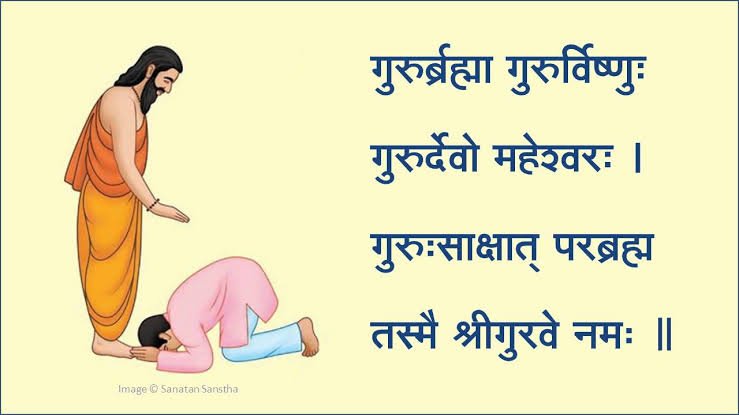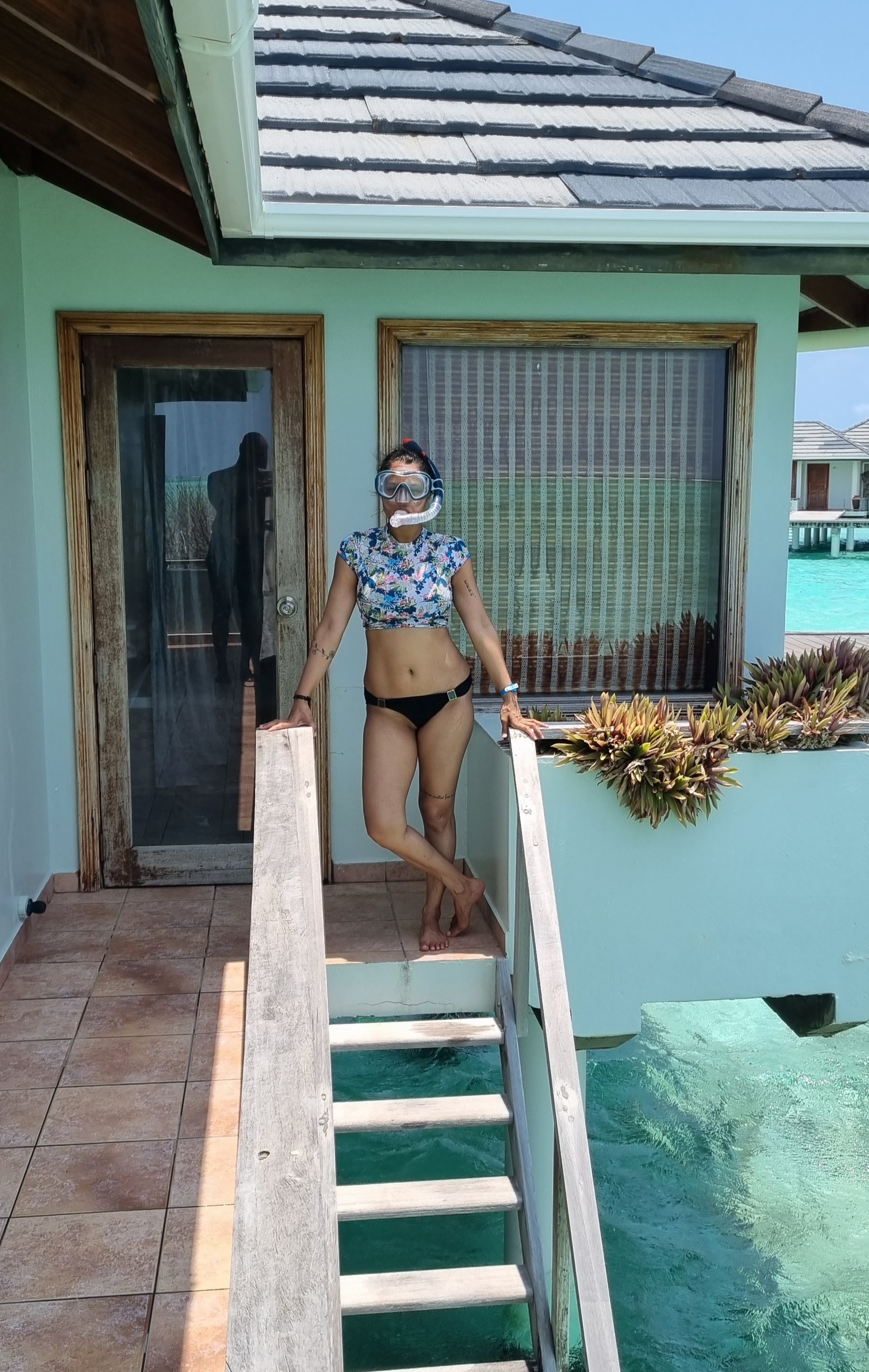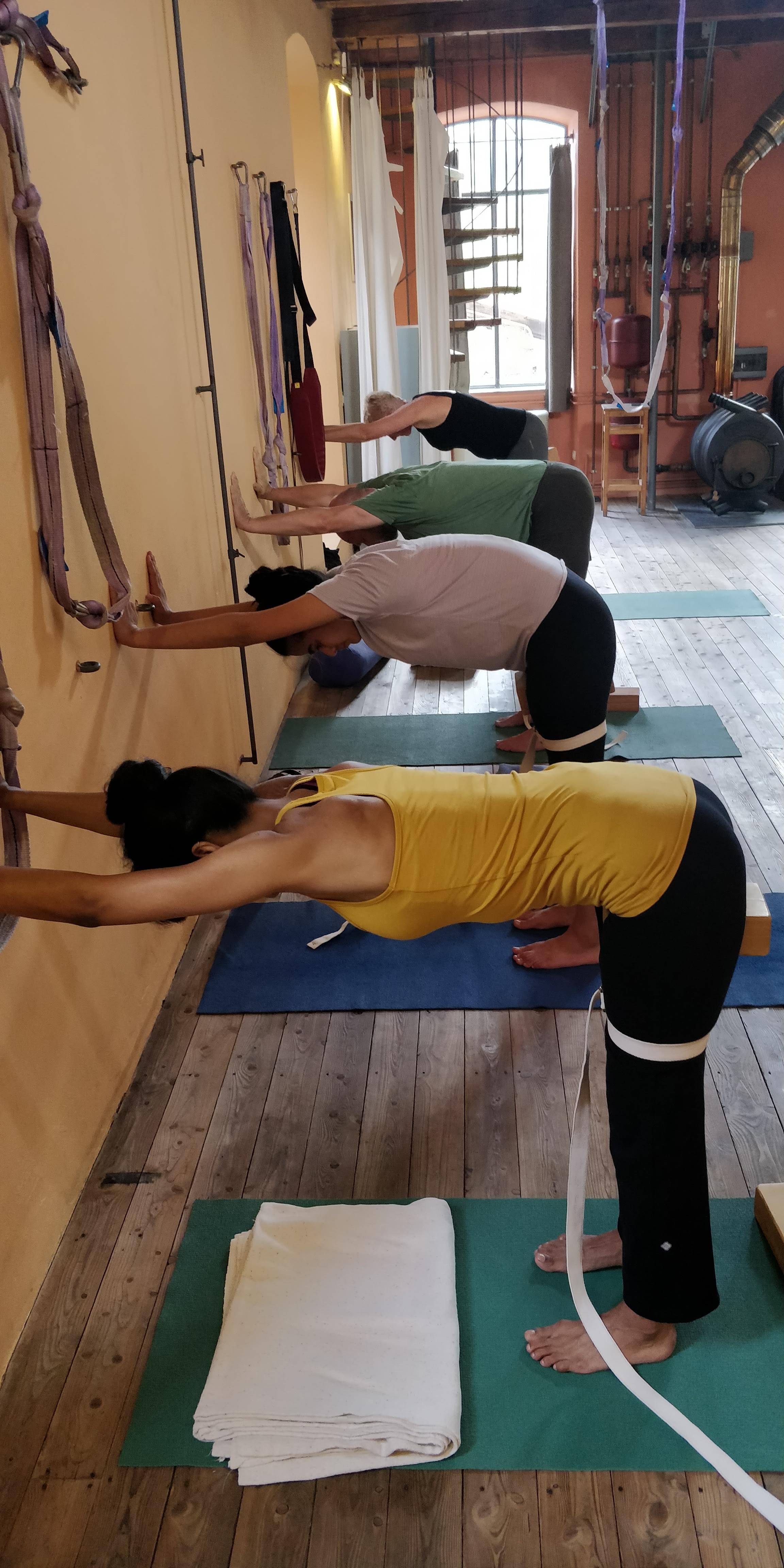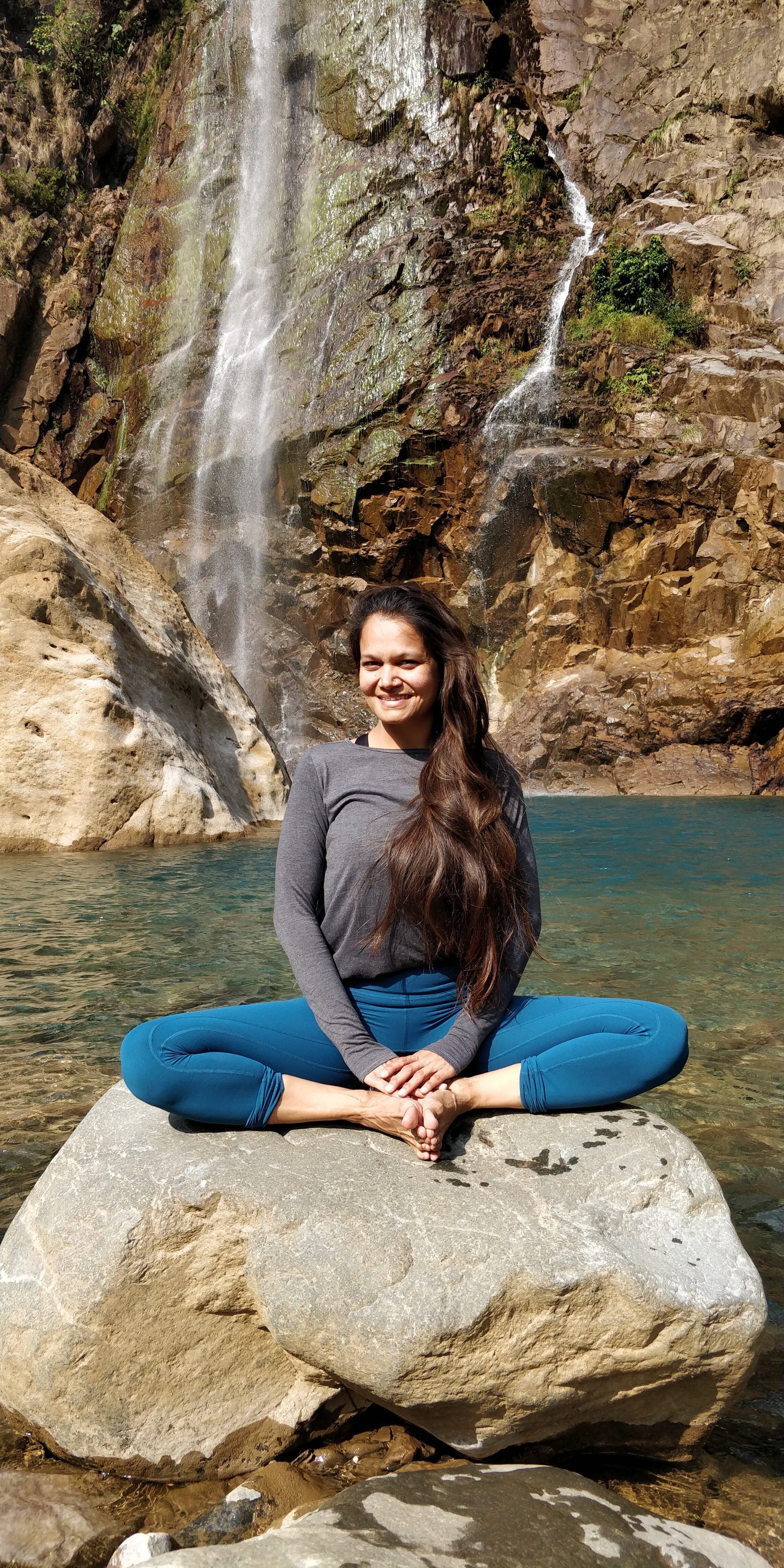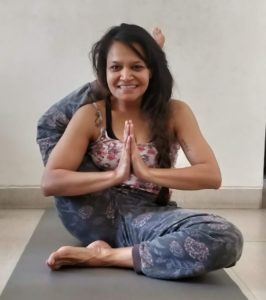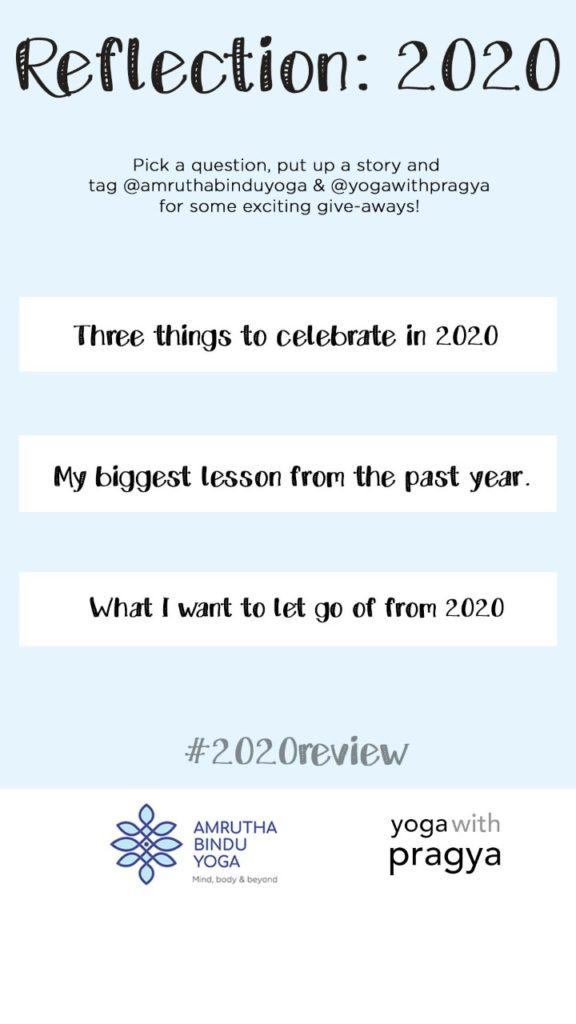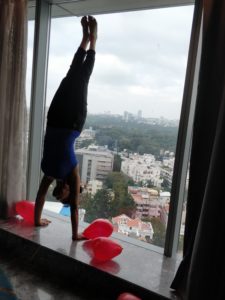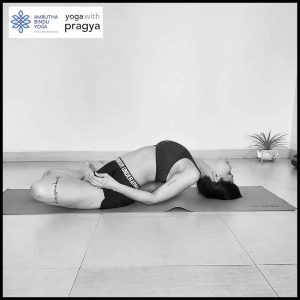To commemorate Guru Purnima, we had a special Vedanta lecture this morning, focused on the meaning and significance of the day for seekers. Subhadra ma’am started with defining the word guru: remover of the darkness of ignorance. Vedanta is the study of the Self, and the Guru is someone who reveals the glory and magnificence of our Self to us. On Guru Purnima we invoke the essence of the guru parampara. We appreciate and acknowledge the efforts of those who have walked this path before us and made it smooth and easy for us.
Subhadra ma’am then delved into the reasons why we study Vedanta. She explained that the study of Vedanta results in self transformation. Through our study, contemplation and understanding, we hope to remove the obstacles that stand between us and this transformation. These obstacles are both emotional and intellectual. She reminded us that as students we must remember that removing these obstacles is a gradual effort that requires constant sadhana and dedication. It is a time consuming process, and transformation doesn’t happen over night or even in the course of a few weeks. This process is also known as the atma katha – the story/journey of our innermost self.
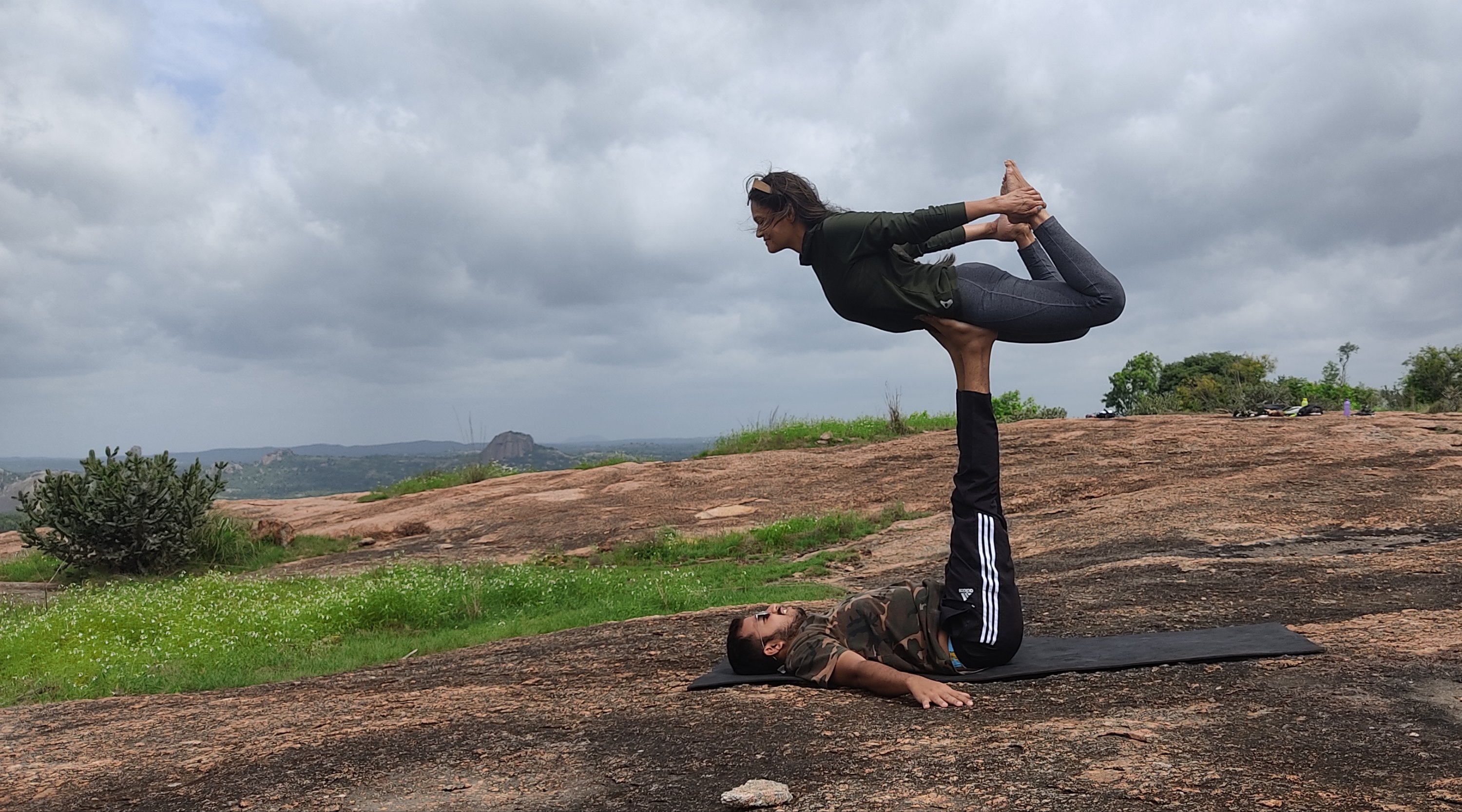
With Shriram, learning kalaripayattu and Acro yoga.
Next ma’am spoke about the greatness of the Guru. The Guru is great is because he has been blessed by the shastras. A Guru’s greatness can be conditional but the shastra’s greatness is ever existent, unconditional; it is this unconditional greatness that is transferred from guru to shishya. The Guru can be likened to a celebrity promoting Brahma vidya/sukha vidya/atma vidya/ananda vidya. Which is why the teachings are always in the form of a dialogue – the seeker has questions and is given answers. In the Bhagawad Gita (the second Vedanta text we’re studying), Arjuna frequently repeats his questions, and the Lord answers him patiently. This is symbolic of how, as seekers, we might not understand an idea or a concept at the first go, but Vedanta is patient and will support our endeavours.
To commemorate Guru Purnima, we worship and pay homage to the entire guru parampara – the parampara commencing directly from Lord Narayana, Lord Dakshinamurthy and the Adigurus, so that we can learn from the shastras. We look at ourselves in the mirror of the scriptures and see the beauty that lies there. We salute the entire lineage we’ve become a part of.
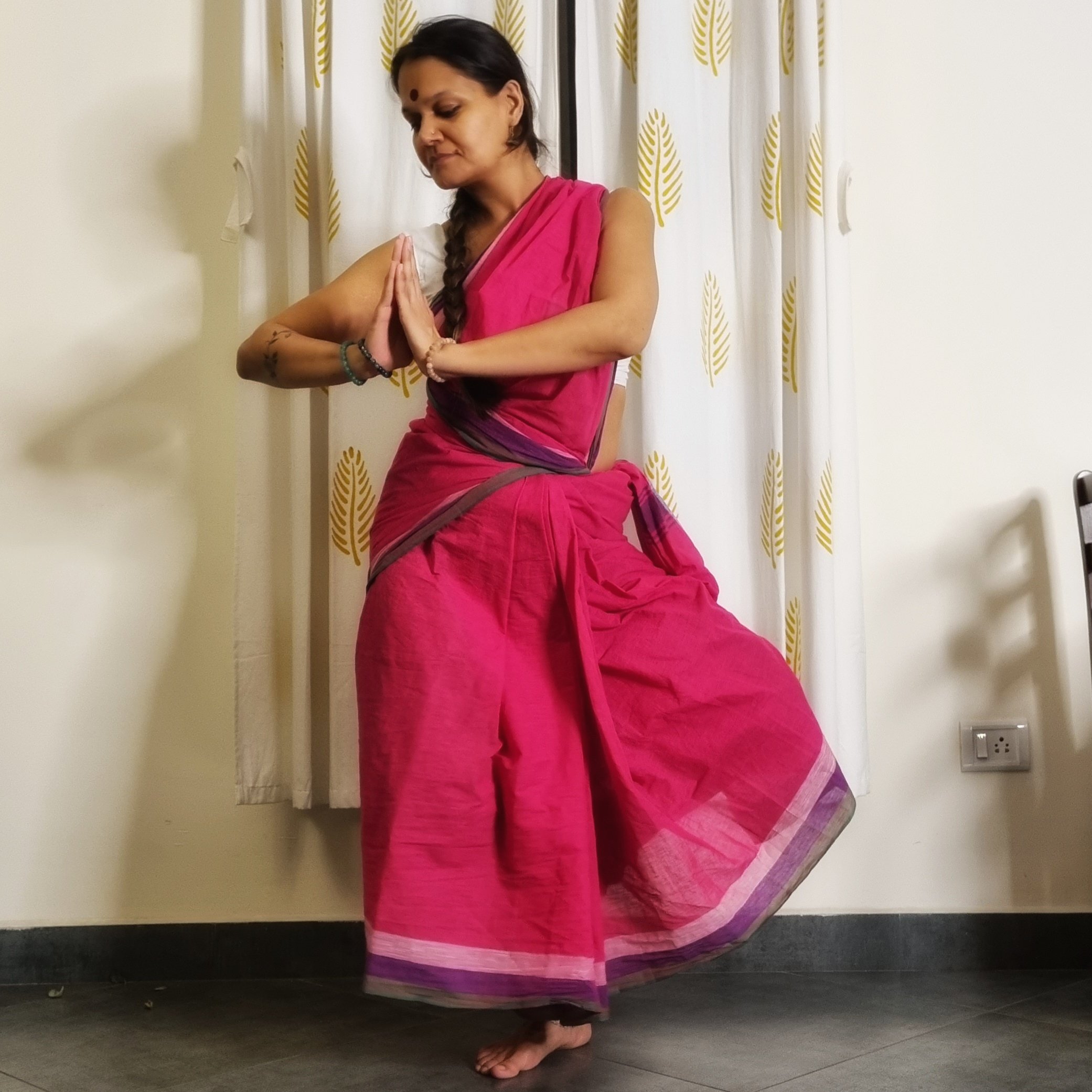
Thankful to my dance guru, Honey Unnikrishnan, for teaching me more than just dance, and being there to answer all my questions with honesty, openness and humbleness.
The guru-shishya parampara pervades all Indian art forms, perhaps because art is a discovery and exploration of Self. My dance teacher, Honey Unnikrishnan took some time out today to discuss the guru shlokas we recite in the beginning of class. The Guru is someone who holds your hand (metaphorically) and leads you to the light, never letting go of your hand on this journey. So the Guru is God in disguise and we must appreciate that. Guru is equal to God, if not above Him. Both my Vedanta and Mohiniyattam teachers emphasised transformation and change and stressed the importance of saluting not only your direct guru but the entire parampara
As I listened to these talks by two of my gurus, I thought about my own transformation. About how this past weekend in Auroville, I easily prostrated myself in front of Ramesan Lakshman, the guru at Kalarigram. A decade ago I believed the practice of touching anyone’s feet was regressive, a tribute to chauvinism, a ritual that had no place in this century. But over the years I’ve searched for and found wisdom, guidance, support and (dare I say?) enlightenment from gurus of classical dance, literature, kalari and yoga. And when I bow down before a guru today, I do so with a comforting sense of surrender and trust in this age old pramapara.
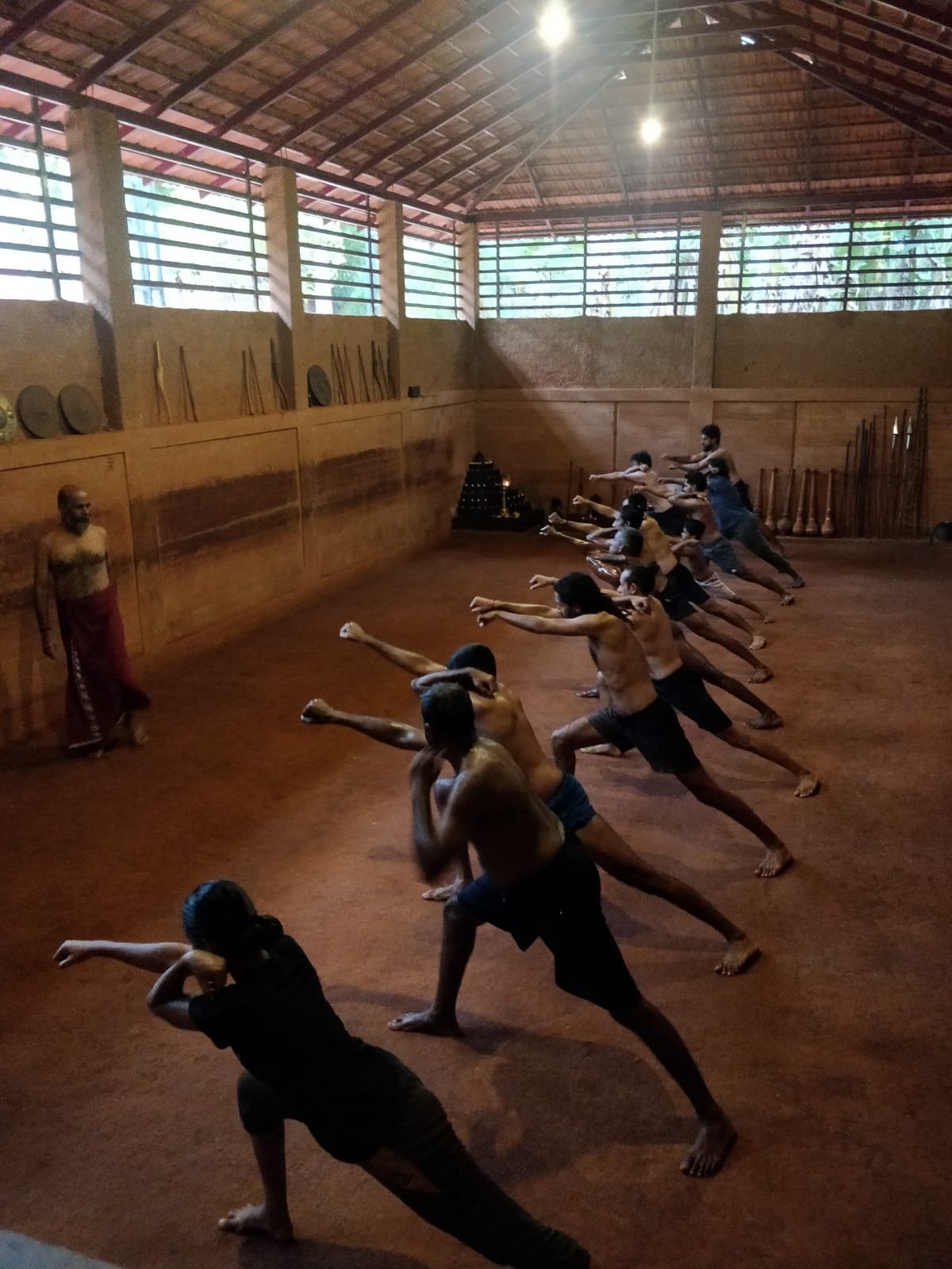
To meet a student where they are is a characteristic of a good teacher. I’ve attend classes with numerous teachers and have been lucky to gain insight and inspiration from the best. @Kalarigram
